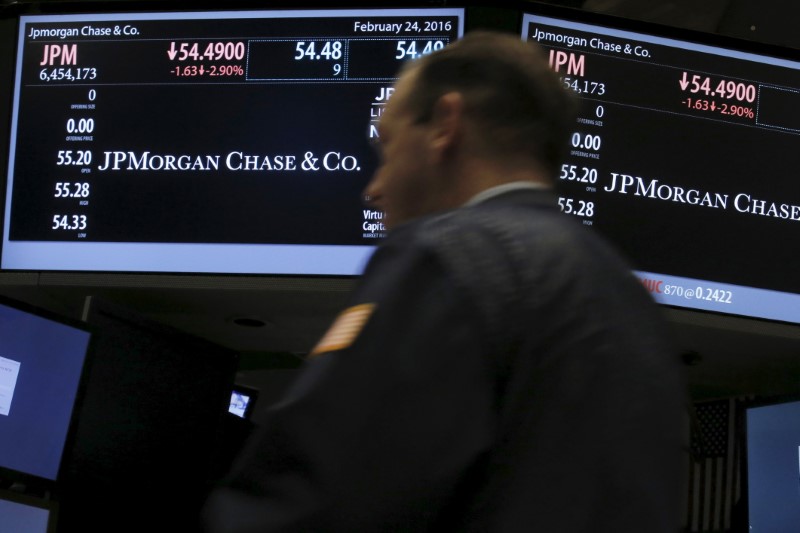LONDON (Reuters) - Commodities-related revenue at the 12 biggest investment banks in the first half gained 38 percent year on year, driven by the energy and base metals sectors, consultancy Coalition said on Thursday.
Revenue from commodity trading, selling derivatives to investors and other activities in the sector climbed to $2.1 billion, the financial industry analytics firm said in a report.
"The sharp revenue rebound reflected one-off gains in energy and base metals, and a recovery from trading underperformances in 2017," Coalition said.
Many banks posted strong second-quarter results this year although typically they do not give figures for commodities.
One of the top commodity banks, JPMorgan Chase & Co (N:JPM), saw quarterly profit last month top Wall Street's expectations as trading revenue came in much higher than expected.
The rise in the first half comes after years of falling revenue in the sector for top banks, including a 42 percent fall last year to its lowest since at least 2006.
Revenue in the commodities sector at the 50 biggest investment banks was $4.3 billion last year, the lowest in more than a decade and down from $15.9 billion (12.33 billion pounds)in 2008 at the peak of the commodities cycle, according to Coalition.
Banks' commodity revenue has been on a steady downward path in recent years as they have exited or slimmed down their commodity businesses due to heightened government regulation and poor performance from the sector.
Coalition tracks Bank of America Merrill Lynch (N:BAC), Barclays (L:BARC), BNP Paribas (PA:BNPP), Citigroup (N:C), Credit Suisse (S:CSGN), Deutsche Bank (DE:DBKGn), Goldman Sachs (N:GS), HSBC (L:HSBA), JPMorgan, Morgan Stanley (N:MS), Societe Generale (PA:SOGN) and UBS (S:UBSG).
